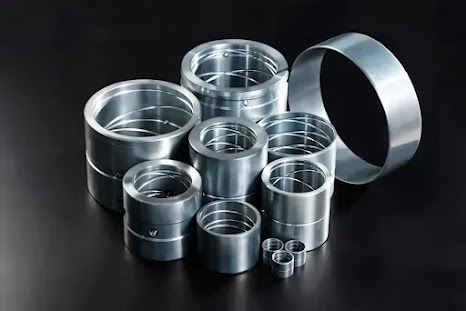Understanding the Root Causes of Bearing Failures
Many industrial devices, machinery, and equipment depend heavily on bearings. Although bearing failure cannot be prevented, its effects on business operations can be minimized. The secret is knowing what goes wrong with a bearing and how to stop it from failing too soon.
The Common Reasons for Bearing Failure!
There are numerous reasons why bearing failure may happen. Some of the most common are:
- Improper Lubrication. Insufficient lubrication is the prime cause of bearing failures. Using proper lubricant or not enough lubricant is also a reason for machine failure. High temperatures may degrade the lubricant and make the machine fail to operate smoothly
- Contamination and Corrosion. In bearing assemblies, contaminants like dirt, sand, water, and chemical substances can lead to a variety of problems. For instance, they might deteriorate the lubrication or corrode or erode the bearing surfaces. All such situations may be an early failure.
- Misalignment. Some bearings, but not all of them, can tolerate little misalignment between the shaft and bearing housing. Bent shafts, contaminated parts, incorrectly shaft positioned, and locking nuts are common causes of misalignment. These problems may result in excessive vibration production and unequal load distribution, which could speed up failure even more.
- Fatigue— The term "fatigue" (also known as "spalling") describes the fracturing of bearing surfaces and the consequent breaking off of material fragments.
Ways to Evade Bearing Failure (Premature)?
Knowing why bearing failure occurs makes it easier for professionals to implement appropriate measures to avoid the cause(s). The most frequent ones include:
- Choosing the Right Bearing. Choosing the proper bearing is one of the actions one may take to prevent early failure. The bearing needs to be the appropriate size and load capability for the machine.
- Correct Bearing Installation. When installing a bearing, the right tools should be utilized. The bearing must also be placed following the manufacturer's guidelines & recommendations. Once it is installed, it is crucial to make sure that all of the parts are positioned and aligned correctly.
- Following the manufacturer's instructions for lubrication. The bearing will function and perform as intended for the duration of its service life if lubrication is applied following manufacturer recommendations. It's crucial to use the right lubricant and apply the perfect amount of it.
For your bearing needs, why pick Canadian Babbitt Bearings (CBB)?
Bearings are crucial parts of many industrial systems and equipment. Choosing the right manufacturer and supplier is essential, as is keeping them in good condition. Otherwise, there is a danger of unanticipated failure. Unplanned downtime may reduce production and reduce revenue. However, choosing the appropriate component might be challenging because bearing uses vary from company to company. Fortunately, the experts at Canadian Babbitt Bearings (CBB) are here to help.
The team of experts in Canadian Babbitt Bearings (CBB) is fully committed to ensuring each customer. Their support team provides precise products from their stock bearings. They also offer the right bearing from their stock bearings at the right price. They also aid with the following:
- Establishing a delivery schedule and price range that are suitable for your demands
- Choosing the best bearing for your needs and constraints
- To find the ideal solution, they can either use their inventory or the global sourcing network.
In addition to the one-stop shopping experience, bearing detective capabilities, and extensive online stock bearings, you can benefit from their OEM and MRO expertise, OEM parts interchange services, same-day shipping options, and 24/7 customer support.




Comments
Post a Comment